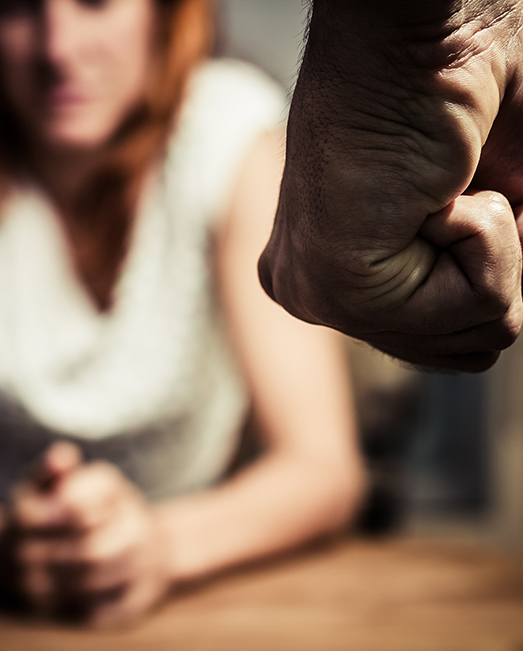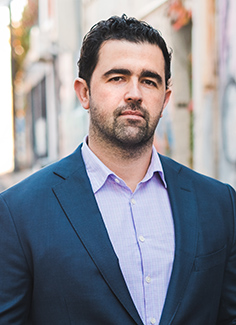Community
Copyright@ Australian Catholic University 1998-2026 | ABN 15 050 192 660 CRICOS registered provider: 00004G | PRV12008
Copyright@ Australian Catholic University 1998-2026 | ABN 15 050 192 660 CRICOS registered provider: 00004G | PRV12008

When Elliot Rodger murdered six people and took his own life in a violent spree in California in 2014, he said it was retribution for "the cruelness of women" who had rejected his sexual advances. When Alek Minassian allegedly killed 10 in his own massacre in Toronto in April, he aligned himself to an online subculture of men who blame women for depriving them of sex.
Both of these attacks are inexorably linked with the disturbingly popular incel movement — short for “involuntary celibate” — whose proponents incite violence against women, view rape as acceptable and see women as biologically inferior.
While it might be tempting to dismiss incels as pathetic, sexless young men, their extreme anger is driving them to murder. They are part of a broader male supremacy movement that has been labelled “a hateful ideology advocating for the subjugation of women … its unifying thread is virulent, at times violent misogyny”.
In his forthcoming book New Demagogues: Populism, Religion and Masculinity, political sociologist Dr Joshua Roose explores this movement and what he has termed “ideological masculinity”, a political narrative “based on the subordination of women and centred on male victimhood, dispossession and deprivation”.
“Men who subscribe to this ideology are fuelled by a deep hatred of women and feel they’ve been left behind in the march towards gender equality,” said Dr Roose, an expert on the role of masculinity in extremism.
“They seek to promote a return to a period of perceived male supremacy, which has gradually been lost to women's rights and self-effacing men.”
Men who identify with ideological masculinity experience deep resentment, and this can manifest in different ways, like the online abuse of feminist commentators, disparaging remarks about the sex lives of female politicians, and disrespecting the victims of male violence.
“If you look at the incels, they encourage physical and sexual violence against women based on the fact they’re depriving them access to their bodies,” Dr Roose said.
“Other groups might be seeking a return to a time when men dominated all parts of the workforce. They justify their acts as reclaiming what they think is rightfully theirs.”
And while there is nothing new about men committing violence against women, or expressing their hatred of feminists, “there’s been a particular ferocity to it over the last few years”.
At its worst, ideological masculinity is radical and violent.
Before shooting 14 women dead at Montreal’s École Polytechnique in 1989, Marc Lépine shouted: "You're all a bunch of feminists, and I hate feminists!"
The mass murderer Anders Breivik, who killed 77 people in Norway in 2011, detailed his anti-feminist motives in his manifesto.
The more recent threat has come from self-described incels, like Rodger, who posted a string of bitter, women-hating videos on YouTube and also left a manifesto detailing his motives.
Following in his footsteps was Minassian, whose final Facebook post before allegedly ramming a van into pedestrians, killing eight women, paid tribute to the “Supreme Gentleman”.
“The Incel Rebellion has already begun!” the post read. “We will overthrow all the Chads and Stacys! All hail the Supreme Gentleman Elliot Rodger!”
“Chads” and “Stacys” (attractive men and women) are among the incels’ main hate targets, along with “Normies” (those who aren’t attractive but still get sex). Since his hate-fuelled attack, Minassian has become the movement’s “new saint”.
But can the actions of these troubled individuals be classified as violent extremism? Are they in the same category as an Islamic State-inspired suicide bomber?
In the days after Minassian’s massacre, commentators began to question why the authorities had been so quick to downplay a terrorist link.
In Australia, violent extremism is defined as “the beliefs and actions of people who support or use violence to achieve ideological, religious or political goals”.
The definition goes onto to stipulate that those who engage in violent extremism “seek change through fear and intimidation rather than through peaceful means”.
“If a person or group decides that fear, terror and violence are justified to achieve ideological, political or social change, and then acts accordingly, this is violent extremism.”
“I would argue that this makes violence against women on the basis of ideological masculinity a very strict and pure form of terrorism,” said Dr Roose, the Director of ACU’s Institute for Religion, Politics and Society.
“If you look at the heart of the definition — ‘seek change through fear and intimidation’ — that’s what incels and others are trying to achieve. They want to gain power by instilling fear in women and those they have a hatred for, to act as a catalyst and to inspire others.”
He added that other actions associated with ideological masculinity, like online abuse, could fit the definition of violent extremism.
“Violent extremism is not always tied to pure action, it can also be related to the threat of violence,” he said. “When someone gets online and writes, 'I'm going to rape and kill you, you feminist so and so', that's a threat of violence, and as far as I can see, that clearly falls within the definition of violent extremism.”
Like jihadists who set off bombs in the name of Islam, those who commit violence in the name of inceldom are often marginalised, angry young men who are soft targets for radicalisation.
“Whatever we call Minassian’s violence,” said Brookings Institution analyst Chris Meserole, “we will ultimately need to address the fact that the same kind of tactics and communities the Islamic State exploited have now produced the ‘incel rebellion’ too.”
The Atlantic’s Graeme Wood also wrote of the similarities between incels and Islamic terrorists. “Murder is easier when someone is whispering at you every few minutes, telling you the rest of the world deserves what it gets,” Wood wrote. “These communities become, like ISIS, instruments of conscience-annihilation, and the lonely losers within them become desensitised and, ultimately, morally inverted.”
Dr Roose agreed there were some strong parallels between the narratives of the two groups.
“They both target this fault-line of masculinity: what it is to be a man, which these men feel they're lacking in some way. They’re not able to engage constructively with feeling vulnerable, or angry, or humiliated, and in that context they focus on the hurt, shame and anger and lack the capacity to see a bigger picture to their lives,” he said.
“This fault-line of masculinity is essential to the Islamic State movement, it’s crucial in recruiting foreign fighters, and it's essential to understanding incels and the way they've grown online by exploiting the same thing.”
Ideological masculinity isn’t yet a danger that rivals Islamic State or other extremist groups, but the threat of a further rise in gender-based extremism is, at the very least, a cause for concern.
“Women have the right to feel safe in their environment,” Dr Roose wrote on The Conversation. “Public policy must treat ideological masculinity’s call for violence against women as seriously as other forms of ideologically motivated violent extremism.”
Although only a small percentage of those who subscribe to the ideology put their beliefs into violent action, their extremist acts could prompt others to follow.
“What we’ve seen with the Islamic State is that the attacks might seem to have no clear pattern, but they draw on each other for inspiration, they draw on what they perceive to be the bravery of those who have gone before them,” Dr Roose told Impact. “We’ve already seen that with the incels, and the danger is that we'll start to see that again and again and again.”
By framing these attacks as violent extremism, government can begin to address the root causes of ideological masculinity and target “disaffected” men in the same way they targeted extremists in Muslim communities.
“Governments are not facing up to what will be an increasing problem. As women continue to do well in the workforce, as they continue to rise up into positions of power, there will be more men who fall through the cracks” Dr Roose said.
“We need a stronger focus on reaching men at the margins, we need to engage these men and work out how we can better address this in society.”
Dr Joshua Roose is the Director of ACU’s Institute for Religion, Politics and Society. His book New Demagogues: Populism, Religion and Masculinity will be published in the second half of 2019.

Copyright@ Australian Catholic University 1998-2026 | ABN 15 050 192 660 CRICOS registered provider: 00004G | PRV12008